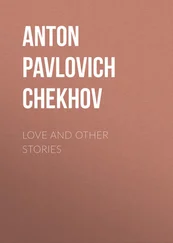They drop their parachute bags and raise their arms as they are relieved of their weapons, ammo, and boots. The man patting Kolya down misses the cassette tape buttoned into his shirt pocket. The rebels sport full beards, slender waists, and mud-spattered plastic and leather sandals. One wears a green headband squirming with Arabic script. The one patting Kolya’s calves for concealed sidearms has the straightest, whitest teeth he’s ever seen. The scrawny kid with almond eyes doesn’t have the beard of an insurgent yet, but Kolya knows that’s what he is, deep down, just as he’d feared himself capable of murder long before he ever picked up a gun.
“ Kontraktniki ,” the rebels whisper. From their tattoos and black sleeveless shirts, Danilo and Kolya are obviously mercenaries rather than conscripts. The rebels deal with captured conscripts — all poorly trained and terrified teenagers — more leniently than contract soldiers, who collectively conduct themselves like Russian Rambos with less discriminate aim.
A tall, silent man in a Tesco T-shirt kicks Kolya’s legs from under him and binds his wrists from behind with wire. He lies on the ground beside Danilo. Behind them, younger insurgents sift through their belongings. The tall one doesn’t leave their sides. We’ll die today, Kolya realizes, but rather than horror or surprise, the realization hits him like the first breath after a long, dark dive under water.
The tall man spreads open two body bags in front of Kolya and Danilo. “Get in,” he orders.
Danilo begins to protest, but a swift rifle butt to his temple interrupts the plea. Kolya watches two younger rebels fold Danilo into the black plastic body bag like a poorly tailored suit into a garment bag. The second bag lies open on the ground, and with a sigh, he climbs in legs first and is zipped up.
They lie there for an indeterminate interval while the rebels talk in Chechen. The body bag traps all of Kolya’s heat. The whole goddamn thing smells like the inside of his boot. There’s a two-centimeter gap in the zipper and he puts his mouth to it as if to a nipple and sucks. He keeps waiting for the sifting of dirt, the ring of spade on rock, and when several strong hands lift the corners of the body bag, his throat clenches and he thinks: this is it, this is it, this is it . But rather than falling, he is raised. Rather than dirt, he feels the ribbed plastic of a truck bed slide under him.
The ignition thrums to life. German make, no doubt. The truck jolts forward.
The seconds unspool and in the dank darkness Kolya finds himself wondering what Danilo’s wife is doing at that moment. Where she is, what she’s wearing, what thoughts are dreaming their way through her mind. Only four men in the unit are married and their wives have become communal. In small Siberian towns, those four wives will never know that in Chechnya they’re polygamous, that soldiers they’ll never meet yearn for and wish after them. Some compose long love letters, never sent. Others rewrite their wills to bequeath their modest possessions — a hunting knife, an ammo belt — to women known only in their imaginations. Danilo’s wife had grown up in Irkutsk as the granddaughter of a barber rumored to have once trimmed Stalin’s mustache. As a child she’d wanted to play the violin, but the violin teacher had taken one look at her cigar-stub fingers and told her to take up the trombone instead, even though she was a girl. That trombone might’ve saved her life when grain shortages hit the city: Party bigwigs wanted a healthy horn section on call for fanfares in case someone from Moscow visited, so she received upgraded ration coupons while the violin teacher went hungry. She has wet-grass green eyes and a Prometheus disco light set. All throughout childhood her father told her that only a mousetrap offers free cheese, but she’d already left home and couldn’t repeat the proverb back to him when he decided to invest his life’s savings in a bank account that promised a five-hundred-percent annual return. She can still perform patriotic fanfares when required, but prefers big-band jazz, and when she plays “When the Saints Go Marching In,” her single trombone sounds like a twelve-piece band. From the raw materials of Danilo’s stories, Kolya has built himself a life with her. Believing in the unconditional love of a woman he’s never seen, never met, is the closest he’s ever felt to God’s grace.
He rolls over and speaks through the two-centimeter gap. “You there?”
Danilo rolls over too. They’re lying side by side, bagged bodies nearly touching, passing a single breath back and forth through the small slit in their zippers. The truck lurches beneath them.
“I guess I am,” Danilo answers. They both know better than to speculate on what’s to come.
“Hum that song about the marching saints for me,” Kolya whispers. But whatever Danilo hums is lost in the wind-whipped velocity of the accelerating truck.
They don’t speak again, but the muggy lightless coffin becomes less oppressive to Kolya when he thinks of Danilo suffering too. Minutes and hours lose their edges inside the body bag, and Kolya has no idea how much time has passed when the truck stops. With a heave, Kolya is carried thirty paces. “One, two, three,” a voice counts in Chechen, and then Kolya is weightless, aloft, and falling. Two seconds later the impact knocks the breath from his lungs and his left shoulder from its socket. His breath finds its way back a few moments before his shoulder. He lies there in the body bag, paralyzed with pain, waiting for the first clump of dirt to scatter over him. A descending scream and a hard thump announces Danilo’s arrival. Kolya goes to work on the zipper with his teeth and eventually pulls it far enough to fit his head through.
“Where are we?” Danilo asks. They’re in a pit, what might have once been a wide well. The stone walls rise six or seven meters to a tight circle of sky. It’s wide for a well, but not wide for a prison, two and a half meters across, he guesses. He squirms out of the body bag and unzips Danilo’s. Sitting back to back, they untie each other’s wrists.
THE weeks shrink from seven days to five, counted first on Kolya’s left hand, then his right, then Danilo’s left hand, then his right. Each morning a pair of sun-browned hands appears at the lip of the pit to lower jugs of water that become latrines by noon. Disks of bread fall from the sky and plop into the dirt with disorienting irregularity. At two weeks, Kolya and Danilo are nearly as bearded as the rebels who tossed them in here. At three weeks, a matchbook-size soap bar drops. It’s from a Saudi hotel. Kolya dips it in a water jug but can’t summon a single bubble from the stupid thing. Danilo grabs it from him. Peeling off his shirt, Danilo shows Kolya the bullet hole in his left shoulder where he’d been shot mid-jerk. It’s hardened to a pink coin of scar tissue. Danilo has six others scattered over his torso and legs and surrounding each are homemade tattoos of irises, lids, and lashes. When Danilo bends to try the bone-dry bar on his feet, his back stares up at Kolya.
On cold nights Kolya climbs into his body bag and zips it to his chin. Although the two body bags are demonstrably identical, Kolya has grown attached to his. He’s tried to personalize it, to tear through the sealed seams, to write his name in mud on the canvas carry handles, all token efforts to inflict enough change on his one possession to convince himself that he’s actually alive, that this isn’t some metaphysical holding pen, because a few days in the bottom of a pit with Danilo has taught him all he needs to know about eternity. Sometimes Kolya thinks of his captain, Feofan, a man who always wears his uniform, even to sleep. Behind his back the soldiers would joke that he’d collapse on the ground like loose straw without his fatigues to give him shape. The body bag has begun to feel to Kolya what the uniform must feel to Feofan.
Читать дальше












